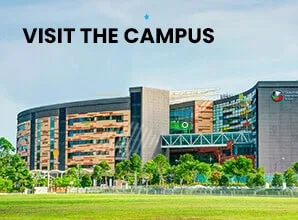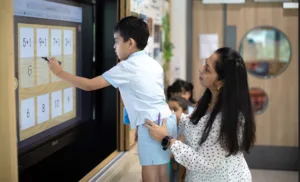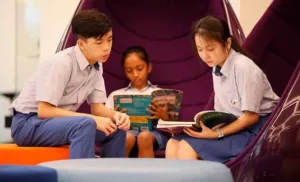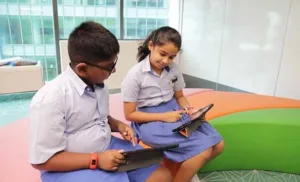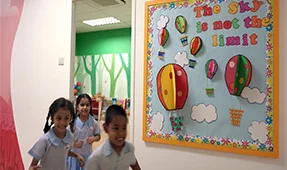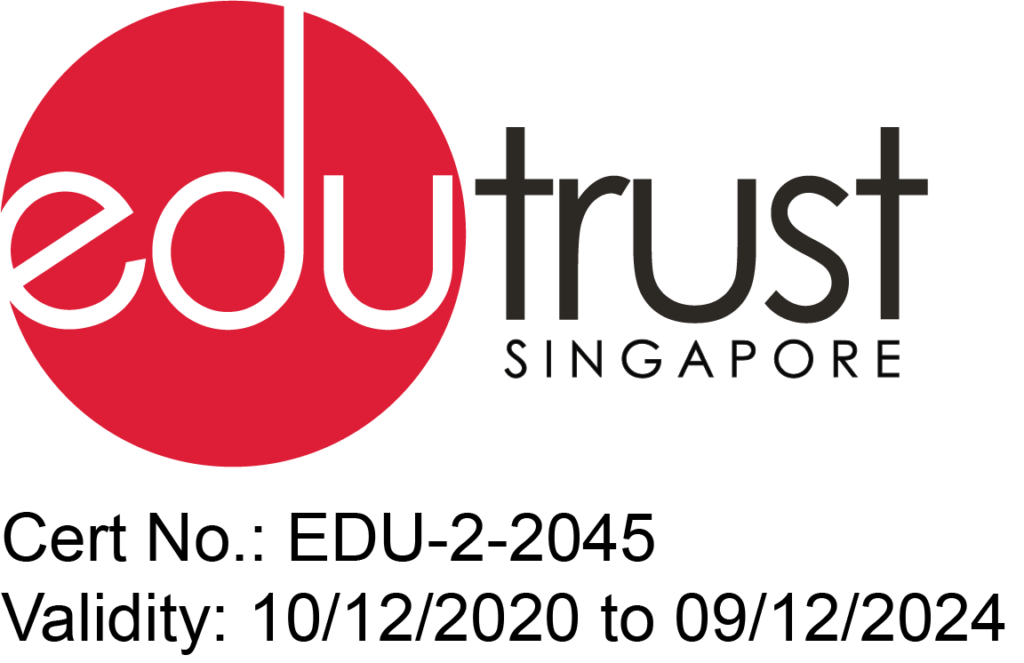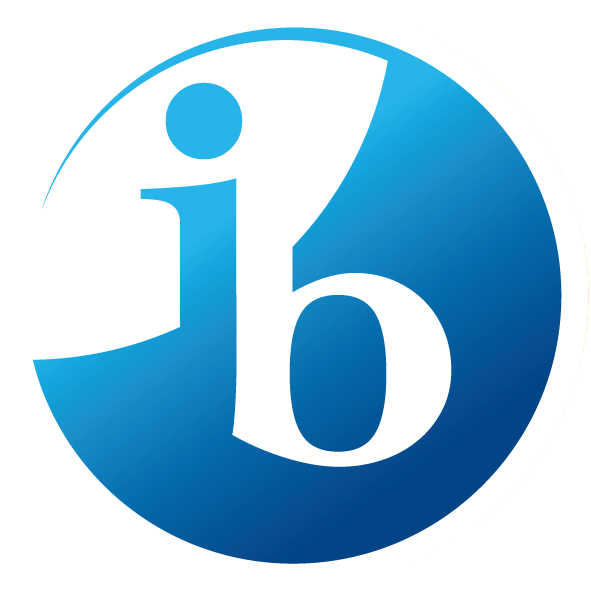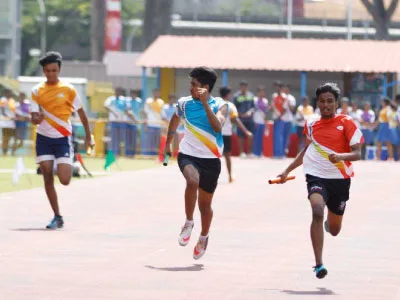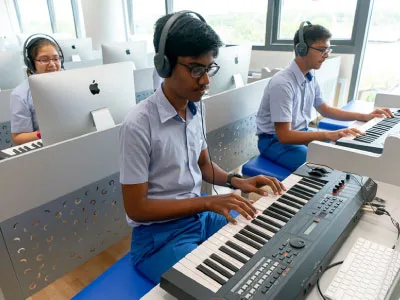At Global Indian International School (GIIS), we are always looking for ways to support our students to be well-rounded, confident future leaders. From the time students join us, through the primary and secondary school years, until they head to university – our educators guide them academically, socially and emotionally. One of the ways we encourage our students who have passed out from GIIS is through Alumni Connect, where we have a conversation with our alumni about their experiences after GIIS.
In one such webinar, we interviewed Nishi Anand, who shared her journey from GIIS to Harvard Business School. Nishi was offered a fully paid scholarship to GIIS, Singapore, from India. Her experiences at GIIS made a significant impact on her, and she reports that her peers at GIIS now hold a special place in her heart.
Nishi completed her IB Diploma Programme (IBDP) at GIIS from 2009 to 2011, achieving her goal of a perfect IBDP score of 45 out of 45. She’s a distinguished alum, and we were proud to have her with us for the Alumni Connect webinar series. During her interview, Nishi provided important information about her journey to Harvard, what universities expect, how you can build your profile and stand out from the other applicants. Check out a condensed version of some of the most important questions answered by Nishi.

‘Personal preferences make goal setting more rewarding’
Q: How does one go about selecting a university? Can you share some tips with us?
A: Start by identifying the things that are most important to you. Knowing what excites you personally will help you stay motivated when you’re studying and working towards your academic goals. The more passionate you are about a certain subject or area, the easier it becomes to excel in it. The more successful you are in your pre-university education, the more attractive your profile will be to universities when you start to apply.
It’s helpful to know what’s academically important to you when you’re looking for a university because this makes it easier to identify the specific universities that have the academic programmes that you find most interesting. The more familiar you are with your own academic interests and desires, the more these pieces will fall into place for you.
It’s common for students to ignore their personal preferences over conventional wisdom, which might pressure them to study popular or high demand subjects. Thinking about your personal preferences makes goal setting easier and more rewarding.
Knowing your academic and life goals can also be helpful for choosing a location where you’d like to go to school. For example, if you enjoy communications and media and would like to someday work in television overseas, you might choose to attend a university in Los Angeles, where you’ll be close to that industry.

‘You should have Plan B’
Q: How did you pick a university?
I decided which features were most important to me among the universities I was considering, and then I narrowed my choices to a few that fit that criteria. I made a scorecard thereafter. The scorecard I developed showed how my top-choice school ranked according to my priorities. You should always have a goal in mind when choosing a university, but you should also have a Plan B, so there should definitely be a mix of universities in your list based on your criteria.
It’s best to choose schools based on several factors, including: 1) the courses you’ve studied, 2) the courses available at the university you’re applying to, 3) how is the university rated for the major that you’re applying for, and so on. Creating a scorecard is an excellent way to sort out your priorities, choose a few priorities that matter most to you, and decide in pretty clear terms the schools that are most likely to meet your goals.
‘Build skills and continue to learn’
Q: If you don’t get your first-choice university and decide to take a gap year, how can you make use of that year?
If you decide to take a gap year because you don’t get into your first-choice school, take some internships that will help you develop skills that may help you get into your first-choice school when you apply again. You can also take some short courses or do “voluntourism” – volunteer to do some work to get an opportunity to travel, volunteer with start-ups, and so on. The key here is to build your skills and continue to learn. The benefits and perks of whatever you decide to do are secondary.
This is the same approach that you can take early in your career before you actually start working full-time. You should do internships if you can get them. Taking this approach will help you understand more about what motivates you and what your natural strengths are. You’ll also get to meet people who inspire you. Building these relationships will help you find your path once you’re looking for your first job.
From GIIS to University College London: An alumna’s path to success
Want to find out how you can achieve your academic goals?
.jpg)
If you’re a secondary student or a parent of a secondary student who has ambitious academic goals to achieve and looking for the best path to your university programme of choice, we welcome you to discuss your options for a pre-university course at GIIS.
We have a dedicated career counselling team who will be able to provide you with tips in choosing your subjects wisely for the IBDP and your future university and career options.
To learn more about choosing a university or making the most of your years before university, please feel free to connect to our admissions team.
